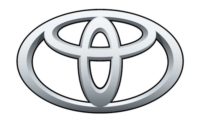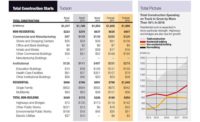Two developers have announced new U.S. production facilities for lithium battery components they say will last longer and don't contain nickel or cobalt, which have supply chains dominated by China.
American Battery Factory has started construction of $1.2-billion, 2-million-sq-ft gigafactory and eventual headquarters in Tucson, Ariz., to produce lithium iron phosphate battery cells.
The American Fork, Utah-based manufacturer estimates that the global market for lithium batteries will reach $105 billion by 2025 and sees demand potentially increasing tenfold during the next decade. Lithium-iron phosphate battery cells offer longer life at a lower cost compared with lithium-ion batteries
Using modular construction with LEED-qualified tensioned fabric, Sprung Instant Structures, West Jordan, Utah, expects to complete the manufacturer's first-phase headquarters, research and development center and 1,500-ft-long assembly line area by 2025.
An as-yet-unnamed general contractor will finish structural details, John Kem, company president, said. At peak construction through four planned stages, about 140 construction workers onsite are expected.
The company will produce the batteries in a configuration known as prismatic cells that fold on each other, unlike circular methods used in most electric vehicles. “We believe this method increases efficiency and longevity,” Kem said, adding that the plant will recycle chemicals used in production. "The building will greatly limit waste at the site, be airtight and will ensure the protection of the battery cells during production."
The 267-acre site is in the Aerospace Research Campus. Kem expects the plant will provide about 1,000 jobs at full staffing and $3.1 billion in annual statewide economic impact while accelerating clean energy growth. Gov. Katie Hobbs (D) said in a statement that the groundbreaking “represents a significant milestone for Arizona’s battery industry,” and termed the investment "transformational."
Meanwhile, San Diego-based developer Wildcat Discovery Technologies also announced an estimated $300-million U.S.-based plant to produce nickel-free and cobalt-free integrated cathodes, with location not disclosed.
The company, which has focused on battery materials research and engineering since 2006, has narrowed plant site prospects to two, which it will announce early in 2024, along with the designer-architect and general contractor, says Jim Voeffray, senior vice president of business development.
The plant would produce about 15,000 metric tons annually of lithium iron phosphate starting in late 2026, lithium manganese iron phosphate in 2027 and disordered rock salt in 2028. Production will peak at 30,000 metric tons per year, he says.
Wildcat is already producing lithium iron phosphate samples for customers and is partnering with a major commercial truck manufacturer to produce a differentiated lithium manganese iron phosphate that is superior to the existing supply, Voeffray says.
He adds that the firm, with carmaker BMW, will develop disordered rock salt, which is “a disruptive cathode chemistry.” He adds that in addition to superior safety of the material's cathodes based on company testing, its energy density based on energy per kilogram is 10–20% higher than the best nickel-based cathodes.
“After 15 years of battery materials research, our new purpose is to produce high-performance U.S.-made cathodes to enable widespread adoption of clean energy,” said Wildcat President and CEO Mark Gresser in a statement. He added that the company has completed solutions for battery components in 225 projects and 400,000 experiments in multiple industries.
Demand is increasing significantly for nickel-free cathode materials that are produced in North America. The cathode accounts for about 50% of the cost of a battery cell, but more than 95% of the global lithium iron phosphate supply today is from China. Nickel-based cathodes have negative environmental impacts and are expensive to produce, Voeffray says.
Also, the U.S. Treasury Dept. on Dec. 14 issued proposed rules for manufacturers seeking to claim a federal tax credit under the Inflation Reduction Act for producing some battery components as well as others related to clean energy manufacturing.





Post a comment to this article
Report Abusive Comment